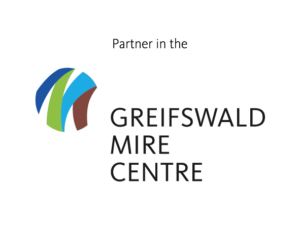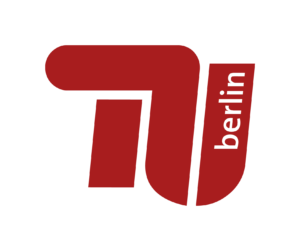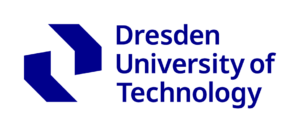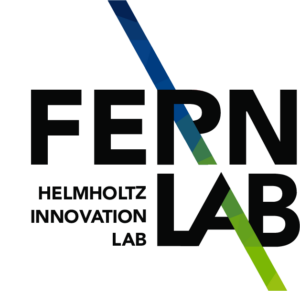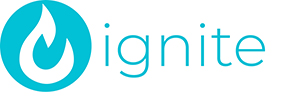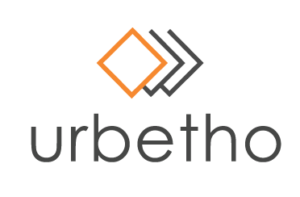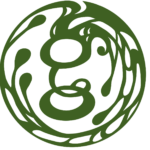Luftbild Umwelt Planung GmbH (LUP)
Luftbild Umwelt Planung GmbH (LUP) is a leading company in the development and application of innovative technologies for environmental and nature conservation projects at the interface of remote sensing, artificial intelligence, and sustainable resource management. Our expertise includes providing high-precision digital solutions for analysing and evaluating ecological processes— a basis for effective and scientifically sound decisions in natural climate protection.
Our institute was founded in 1996 with the aim of utilising environmental information, primarily from remote sensing, and making it applicable for the purposes of environmental analysis and environmental planning. In fact, for more than 25 years now, we have not only been working in the field of processing aerial and satellite image data for environmental issues, we also continue to carry out nature conservation and landscape planning projects as well as expert activities in nature conservation and climate protection. For example, we are involved in specific projects for the rewetting of peatlands in Brandenburg as well as in climate protection concepts at the federal state level. Most recently, we held the technical leadership of the agriculture and LULUCF sectors in the context of the Climate Plan Brandenburg for the state of Brandenburg. This strategy, adopted by the state parliament in 2023, includes the analysis of conditions and emissions for all agricultural and LULUCF subsectors, presents different variants in scenarios and proposes a variety of measures to achieve climate neutrality in the area of natural climate protection. This means that our institute assumes the role of both data creator and data user. Our understanding of the necessary type and content of information for specific environmental and climate protection planning is therefore generally derived from our own project requirements.
As part of this groundbreaking project, we are pooling our expertise to develop state-of-the-art remote sensing-based services that strengthen natural climate protection. Using remote sensing technologies and data-driven modelling, we are creating new opportunities to protect, restore and adapt forests, peatlands and other Federal Action Plan fields of action to climate change. Together with our partners from science, administration and practice, we are developing central services that form the basis for sustainable measures as part of the Federal Action Plan on Nature-based Solutions for climate and Biodiversity.
https://lup-umwelt.de/
https://forestwatch.lup-umwelt.de/
http://urbangreeneye.de/
Contributing to the Services:
Biotopes Vitality Sealing Green Spaces Heat Stress Fragmentation
DUENE e.V.
The scientific non-profit organisation “Institut für Dauerhaft Umweltgerechte Entwicklung von Naturräumen der Erde e.V.” (DUENE) was founded in 1999 by mainly former and current employees of the Botanical Institute of the University of Greifswald. The current board consists of Dr Michael Manthey (chairman), Dr Michael Rühs, Achim Schäfer, Anke Nordt and Dr Wendelin Wichtmann. The main objective of DUENE is to support the sustainable development of landscapes through
– landscape ecological and economic research,
– research into the revitalisation and sustainable use of landscapes,
– dissemination of scientific information
Current research is concerned with issues such as the economic viability of paludiculture, the productivity and usability of wetland plants and the development of approaches for quantifying and monetising ecosystem services. Other activities deal with the improvement and restoration of degraded sites from a nature conservation perspective. DUENE imparts expertise and knowledge in the form of training courses. Topics range from peatland restoration and peatland characterisation to teaching the GEST concept, an approach for estimating greenhouse gas emissions using vegetation as a proxy.
DUENE has been a partner in the Greifswald Mire Centre (GMC) since it was founded in 2015. The University of Greifswald, the Michael Succow Foundation and DUENE e.V. work together in Greifswald as independent institutions with different expertise in relation to peatlands. The Greifswald Mire Centre is a strategic cooperation between these three institutions – as an interface between science, politics and practice in all peatland issues, locally and worldwide. Around 135 peatland experts of all kinds work at the GMC in one location. The GMC offers targeted solutions to social challenges on a scientific basis. The GMC coordinates the world’s largest database “Global Peatland Database” on the distribution and condition of peatlands. The extensive “Peatland Library” is part of the GMC. The Greifswald Mire Centre is a founding member of the Global Peatlands Initiative.
Contributing to the Services:
Technische Universität Berlin – Department of Geoinformation in Environmental Planning
The Department of Geoinformation in Environmental Planning at Technische Universität Berlin is one of the leading institutions in the analysis and development of geoinformation and remote sensing technologies for studying natural vegetation. Our work focuses on leveraging state-of-the-art data from various sensors and time series derived from UAVs, aerial photography, and satellite systems to gain precise insights into ecological processes and the biodiversity of ecosystems.
A particular emphasis of our research is forest monitoring, where we develop innovative methods to analyze forest characteristics and assess forest vitality. Drawing on experience from projects such as FirST2.0 and FeMoPhys, we effectively utilize methods like automated classification, AI applications, and data-driven modeling. These approaches enable us to accurately identify tree species, assess vitality states, and derive structural properties of forests. In doing so, we make a significant contribution to understanding the impacts of climate change and land use on forests and to devising measures for conserving and restoring forest ecosystems. A key area of current research is the detection of forest damage caused by fire, storms, drought, or pest infestations. Modern remote sensing technologies allow us to detect damage, document its spatial extent, and analyze the ecological consequences.
Our research group integrates fundamental research with practical applications to develop innovative solutions for environmental and climate protection. Using remote sensing technologies and geoinformation systems, we contribute to promoting biodiversity and ensuring the long-term protection, restoration, and sustainable management of ecosystems such as forests.
For more information on our research areas and projects, please visit: www.geoinformation.tu-berlin.de.
Contributing to the Services:
Forest StructureThe Chair of Meteorology at Dresden University of Technology is based at the Institute of Hydrology and Meteorology and focuses on key issues relating to the interactions between the land surface, vegetation, and the atmosphere (surface–atmosphere interaction).
Our research focuses on quantitative analyses of energy and material flows, water and carbon budgets, regional climate and climate change, and the coupling of vegetation and atmosphere. We develop and operate both ground-based measurement systems and modeling approaches (up to micro- and mesoscale) and integrate remote sensing and simulation techniques into our research.
An important aspect is the further development of measurement methods in heterogeneous landscapes – such as the determination of radiation, energy, and material flows via soil-plant-atmosphere systems and the spatial variability of land surface properties.
Further information on staff, projects, and current publications can be found on the professorship’s website: tu-dresden.de/bu/umwelt/hydro/ihm/meteorologie
Dresden University of Technology – Chair of Environmental Remote Sensing![]()
The Chair of Environmental Remote Sensing at Dresden University of Technology is part of the Institute of Photogrammetry and Remote Sensing (IPF) and represents remote sensing as an integrative interdisciplinary environmental science subject in research and teaching.
Our goal is the systematic observation, analysis, modeling, and prediction of changes in terrestrial ecosystems using satellite-based data and derived products. Another focus is on the remote sensing of vegetation fires, their spread, and their effects on CO₂, water, and carbon flows.
We develop and integrate state-of-the-art methods from time series analysis, machine learning, artificial intelligence, process models, and data-model integration to estimate environmental parameters, detect changes, and understand ecological feedbacks.
A particular field of research is the methodology for detecting and predicting vegetation fires—for example, through satellite-based indices, time series analyses, and hybrid models—with a view to increasing risks as a result of climate change and periods of drought.
In addition, we work on applications in the field of land use and land cover monitoring, in particular for recording changes in vegetation, forest areas, and ecosystem dynamics. We also focus on regions experiencing water stress, degradation processes, or ecological peculiarities.
Further information on staff, projects, and publications can be found at: tu-dresden.de/bu/umwelt/geo/ipf/envrs
Guided by the principle of “Environmental Data at your Fingertips,” PIKOBYTES plans and develops customized solutions for the collection, management, and analysis of environmental, infrastructure, and geodata. Together with our partners and customers, we work to improve the utilization of this data. To this end, we develop powerful databases, intuitive search solutions, interactive visualizations, and new concepts for highly dense, self-sufficient measurement networks.
We implement IT systems for our customers using modern and powerful technologies. With more than 15 years of practical and scientific experience, we are familiar with many technical issues in the natural and engineering sciences and apply this knowledge to the planning of IT systems. We regularly participate in research and development projects and bring technical innovations into application quickly and reliably. We are very familiar with the relevant standards and norms of IETF, OGC, INSPIRE, and ISO and apply them with a sense of proportion for the implementation of IT solutions.
As an independent service provider, PIKOBYTES masters and supports a wide range of commercial GIS products and open source GIS. With our extensive experience and knowledge, we support our customers in selecting suitable basic technologies and implement modern, cloud-native WebGIS solutions and applications for data visualization and data research. In addition, we use modern technologies and standards that facilitate the handling of huge amounts of data, enable high-performance and fast web applications, and make data visualizations particularly appealing and interactive.
In the field of sensor data, PIKOBYTES is also developing SENSOTO, a cloud-enabled software solution for managing measurement networks and time series data. It offers extensive possibilities for connecting diverse data streams or entire data archives to the system and fully exploiting sensor data from infrastructure and environmental monitoring for analysis tasks. Thanks to the use of state-of-the-art technologies, there are virtually no limits to data processing: the SENSOTO platform can easily handle several hundred thousand sensors and billions of measured values.
Contributing to the Services:
Soil MoistureGFZ/FERN.Lab
FERN.Lab is a working group at the Helmholtz Centre for Geosciences (GFZ)* that specializes in the knowledge and technology transfer of remote sensing research, methods, and data. Our expertise lies in the operationalization of research software (SaaS), the customization of remote sensing methods and capacity building through participatory and co-designed creation of educational and training materials.
The GFZ is a leading scientific research institute in Potsdam, Germany, dedicated to the study of Earth system processes. As part of the Helmholtz Association, it focuses on geophysics, geodesy, geochemistry, seismology, geothermics, earth observation and climate research, addressing global challenges such as natural hazards, climate change and resource sustainability. The GFZ integrates interdisciplinary expertise and operates state-of-the-art infrastructure, including satellite missions such as the German hyperspectral satellite EnMAP. It is known for its global collaborations and contributes to international geoscientific initiatives, such as the assessment of seismic hazards and climate adaptation strategies, while actively promoting education, research, and knowledge transfer. Founded in 1992 on the historic Telegrafenberg in Potsdam, the GFZ combines basic research with applied solutions to advance the understanding of dynamic processes of the Earth.
In the context of this project, we will design training material on the use of EO data and methods in the field of environmental monitoring. The conception of the training courses will be specifically adapted to the needs of public authorities (federal, state and municipal levels) as well as non-governmental organizations (NGOs) and private individuals, in order to ensure effective and sustainable use of the EO Toolbox in practice.
Projects
– FERN.Lab website: https://fernlab.gfz.de/
– FERN.Lern website: https://fernlern.gfz.de/
– EO-College: https://eo-college.org/
– HyperEdu: https://www.enmap.org/events_education/hyperedu/
Ignite Education is a specialized company dedicated to the development and optimization of sophisticated eLearning solutions. With a strong foundation in Earth observation, we have gained extensive experience in processing complex data and concepts. We leverage this expertise to create innovative educational approaches that are both scientifically grounded and practically applicable.
Our primary focus lies in the creation of structured and conceptually well-designed learning content that meets the needs of subject matter experts and learners alike. We prioritize clear and consistent knowledge transfer to ensure a solid and sustainable learning foundation. In doing so, we take into account the cognitive requirements of different target audiences to make content both didactically optimal and flexibly adaptable.
In addition to content development, we implement technological solutions that specifically support learning processes. This includes the integration of digital platforms that utilize innovative technologies such as automation and Large Language Models (LLMs). These systems enable the efficient analysis of complex data, automation of repetitive tasks, and promotion of personalized educational approaches. By linking automation with didactic principles, we contribute to the optimization of learning environments.
Our goal is to develop educational solutions that are not only excellent in content but also sustainable and adaptive. We place particular emphasis on collaboration with academic institutions, schools, and leading industry stakeholders to ensure scientifically sound and practically relevant approaches. Our projects aim to comprehensively rethink education, creating long-term solutions that adapt to the evolving demands of a globalized knowledge society.
LANUK
The North Rhine-Westphalia (NRW) State Agency for Nature, Environment and Climate (LANUK) is a specialised technical and scientific authority that also performs enforcement tasks in the field of consumer protection. In accordance with § 3 of the State Nature Conservation Act, the LANUK is tasked with determining, analysing and evaluating the state of the ecosystem and its changes – including climate change and environmental protection measures. This is done methodically and in terms of content in coordination with other federal states and the federal government.
The monitoring of protected areas, the development of scientific principles for landscape planning and the training and scientific support of staff and volunteers working in nature conservation and landscape management are also among the statutory responsibilities of the LANUK. As part of its new task of municipal consulting on climate impact adaptation, LANUK has been advising on the funding related to the Federal Action Plan since 2024.
To fulfil these tasks, the LANUK pools expertise on nature, soil, water and climate protection and operates various monitoring programmes that continuously record and evaluate the state of nature and the environment. The results are stored in specialised information systems (FIS), from which reports can be generated and (internal) action requirements can be derived. Many of these FIS also provide detailed information for the public, such as the NRW Climate Atlas.
In order to make the regular terrestrial biotope mapping required under § 5 of the State Nature Conservation Act more targeted and efficient and to capture additional aspects in a much more comprehensive and timely manner than before, the LANUK trialed the use of remote sensing from 2013 with third-party funding and then set up an in-house Remote Sensing Competence Centre (FEKZ) in 2020.
The result of the first third-party funded project, carried out in co-operation with EFTAS GmbH, was the pilot software ‘FELM’, which has since enabled even minimally trained staff in remote sensing to use remote sensing data in official Natura 2000 monitoring in such a way that the occurrence of and any changes in the status of areas with Habitat Directive Types (HDT) can be detected more efficiently.
In a second third-party funded project (‘NUMO-NRW’) further technically justified needs for remote sensing data were identified at the LANUK with the help of personal interviews. The added value of remote sensing was illustrated in cooperation with the International Commission for the Protection of the Rhine (ICPR) in the form of a new map for monitoring the success of measures implemented to strengthen the biotope network in the Rhine floodplains. The LANUK was also able to gain valuable experience in the transnational monitoring of a protected area.
With the aim of better consolidating existing governmental resources and generating synergies through scalability and (cross-departmental) reusability, the LANUK was the driving force behind the establishment of the Copernicus data infrastructure at the state agency IT.NRW in 2018. Thanks to the Open Data Policy of NRW, the number of data products and calculation services available in this agency-wide storage and processing environment is continuously increasing. The latest addition is the first state-wide soil sealing map from aerial images, commissioned and co-designed by the LANUK, which is also of interest for several climate protection-related issues (heat stress, heavy rainfall, loss of soil functions).
In the environmental lighthouse project ‘CopGruen’, which was completed in 2024, the LANUK was responsible not only for the development of a service to identify potential areas with the Habitats Directive type ‘meadow‘ but also for project coordination. The aim was to achieve a pragmatic and practical focus on the needs of the state environmental agencies. Workshops with stakeholders from ten federal states and weekly video conferences between the six partners from administration, research and the private sector ensured that the project was carried out efficiently and in a target-orientated manner. The project results can now be found on the CODE-DE platform in the form of several remote sensing-based information services on the topics of mowing regimes, mown meadow habitat types, grassland conversion, heathland encroachment and waterlogging on organic soils.
In the current project EO4Nature the LANUK is also involved in two roles. On one hand, it is responsible for the development of a remote sensing-based calculation service for an indicator of the climate efectiveness of floodplain landscapes. The aim is to differentiate between biotope type groups that are meaningful from a nature conservation perspective and can be measured remotely in order to identify practical options for action for nature-based climate protection measures. On the other hand, the LANUK assumes the role of (not only) governmental practice partner with tasks such as needs analysis and stakeholder engagement, reference data acquisition, evaluation of the service results, documentation and participation in user-friendly portal design.
Contributing to the Services:
Floodplain MonitoringsinumX GmbH specialises in the development of modern systems for recording and mapping internal or specialist workflows. As part of the process analyses offered, abstracted functional schemes are developed that can be technically represented in multiple layers. Naturally, these services are independent of subject area and subject matter, however certain thematic focuses have emergeg in which we primarily operate.
A key area is the development of web-based solutions for environmental research. The digital mapping of specific issues makes it possible to record and aggregate data in such a way that quantitative and qualitative statements can be made. In addition, interaction between users, including interdisciplinary interaction, is often one of the aims of digital work. A current example of one of our developments in this area is the Federal Environment Agency’s strategy impact assessment.
Another field of activity is spatial planning. As with the constant need to adapt to new IT technologies, libraries and protocols, the planning sector is also subject to constant change due to new laws and regulations. For this reason, sinumX GmbH has designed and implemented a parameterised database that allows for any process changes tob e implemented without the need to alter the data model. In combination with continuous statistical data and a comprehensive WebGIS solution, the Planning Information System Berlin-Brandenburg (PLIS) was developed for example, on behalf of the LUP.
Other areas of sinumX GmbH’s work include participant management. In addition to comprehensive logistical processes and the registration of participants through to the digital management of security issues, there is a wide range of services available.
In our overall perspective, it’s all just data that needs to be organised as efficiently and securely as possible. That is always our core concern.
Thünen Institute The Thünen Institute is the Federal Research Institute for Rural Areas, Forests and Fisheries. Research at the Thünen Institute aims to develop concepts for sustainable, ecological and competitive agriculture, food production, forestry, marine fisheries and aquaculture. Our almost 1200 employees conduct research for politics and society in 15 specialized institutes spread across northern Germany. With Thünen Earth Observation (ThEO), the Thünen Institute has had a network structure since 2019 that deals with the creation and evaluation of earth observation satellite data across agriculture, forestry and marine fisheries. The comprehensive, nationwide mapping of land use, as well as the condition of and changes to the land and sea surface, provide an essential basis for assessing land use options and evaluating the implementation of environmental and climate protection measures. The Thünen Institute’s task in the project is to develop nationwide services for the ANK toolbox as a prerequisite for comprehensive environmental monitoring in the field of natural climate protection. This includes a series of indicators that are fundamentally suitable for supporting the monitoring and evaluation of measures for the Action Plan on Nature-based Solutions for Climate and Biodiversity and beyond. They also provide an essential data basis for improving the spatially-explicit modeling of GHG emissions from land use, land use change and forestry (LULUCF). Institutes involved: Thünen Institute of Farm Economics Contributing to the Services: Reference Area Land Use Waterlogging Emissions Tree Species Woody Plants Soil Management
Urbetho CF GmbH is an owner-managed German company with many years of experience in the field of earth observation and cloud computing. The Urbetho team consists of experts in the fields of geoinformation technology, cloud infrastructure and support as well as project management and business development. Together with its international partner network, Urbetho supports customers from the public sector as well as from research and industry.
Urbetho’s services are available to users as well as providers and operators of EO Clouds:
- Users: Urbetho’s dedicated support team enables a quick introduction to cloud use and helps with training courses, extensive training material and individual workshops to design and efficiently use the cloud infrastructure in line with requirements.
- Provider: With many years of experience in research and industrial applications in Europe, the USA and Asia, Urbetho advises providers of data and applications on scaling their services, onboarding to EO clouds and integrating applications into cloud marketplaces.
- Operators: Urbetho supports operators of EO clouds and platforms in tailoring their offering to the needs of users as far as possible and simplifying the use of the platforms. Another focus is on expanding the customer base and community around these clouds.
Urbetho is CloudFerro’s representative in Germany, Austria and Switzerland. As a sales and solution partner, Urbetho offers CloudFerro’s cloud services and provides specialist support for all customers of the public CloudFerro clouds in these regions.
Urbetho’s most important projects include the EO platforms CODE-DE for public authorities and EO-Lab for research projects. Urbetho is the point of contact for all users and their specific requirements for these clouds, which are operated on behalf of DLR.
http://urbetho.com/
https://cloudferro.com/
